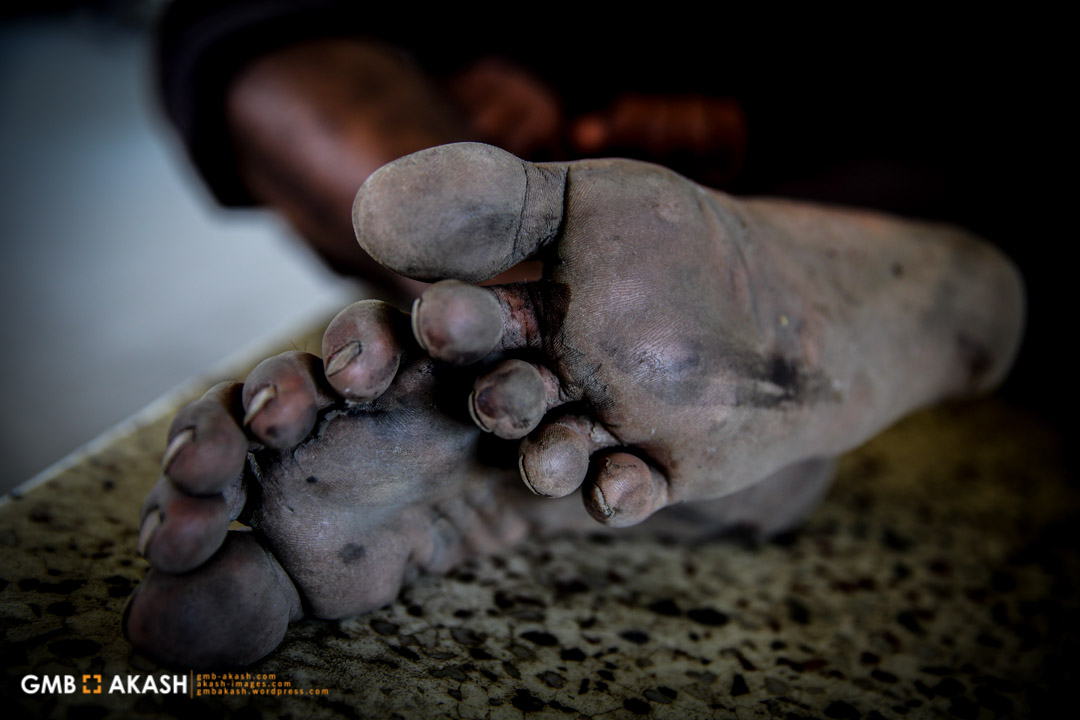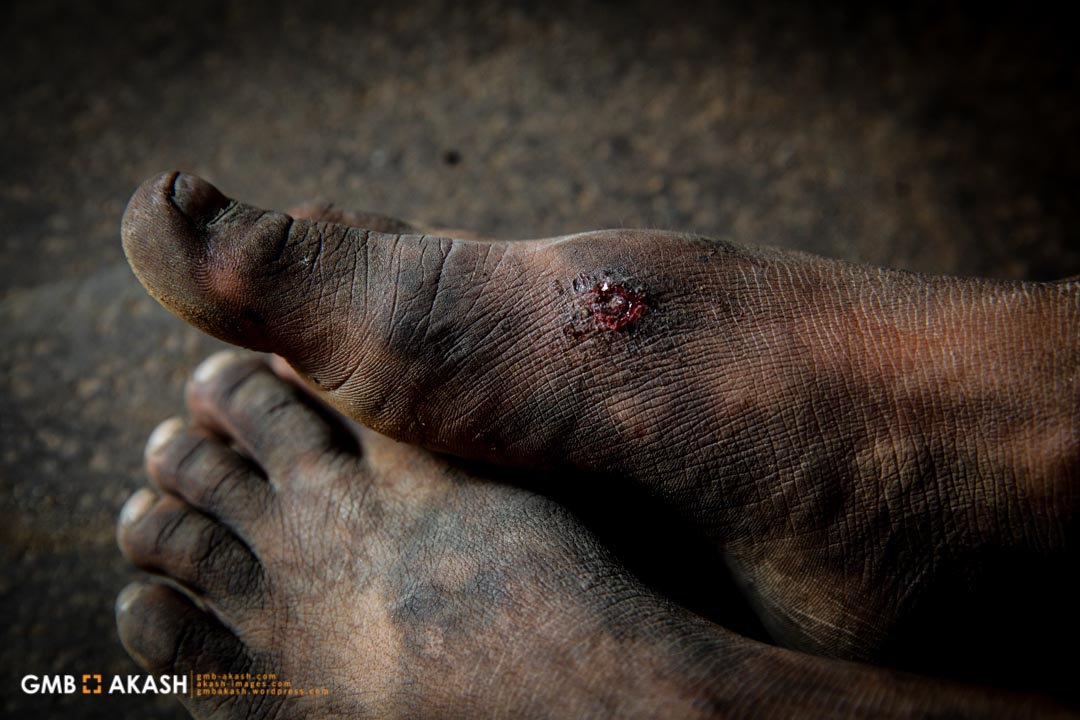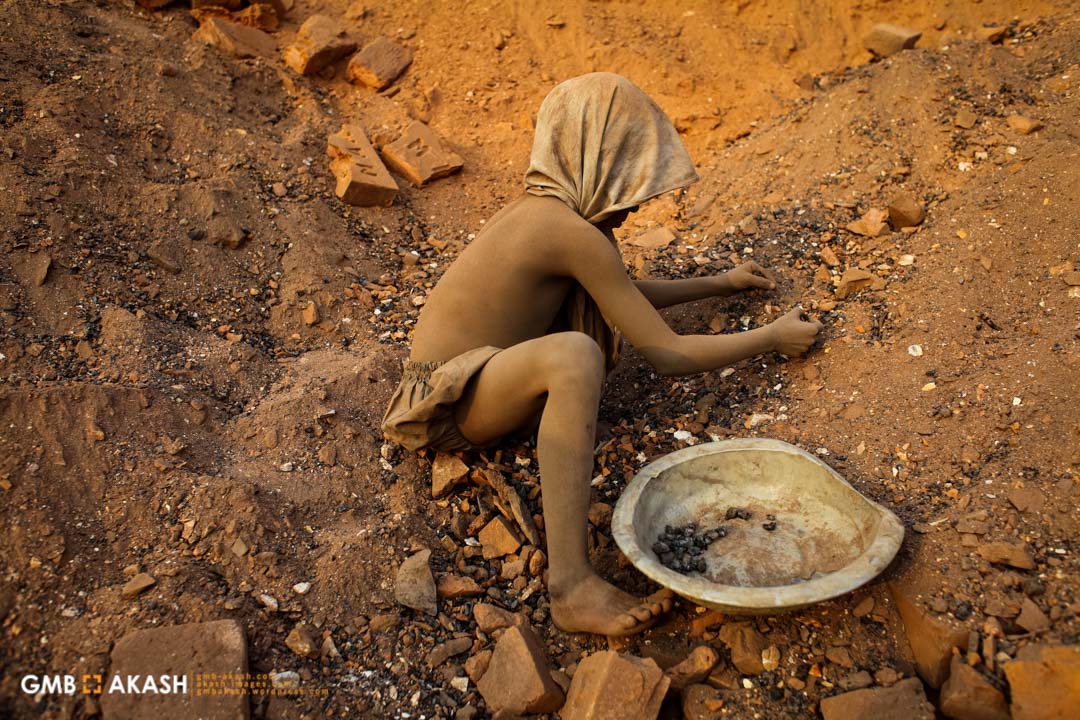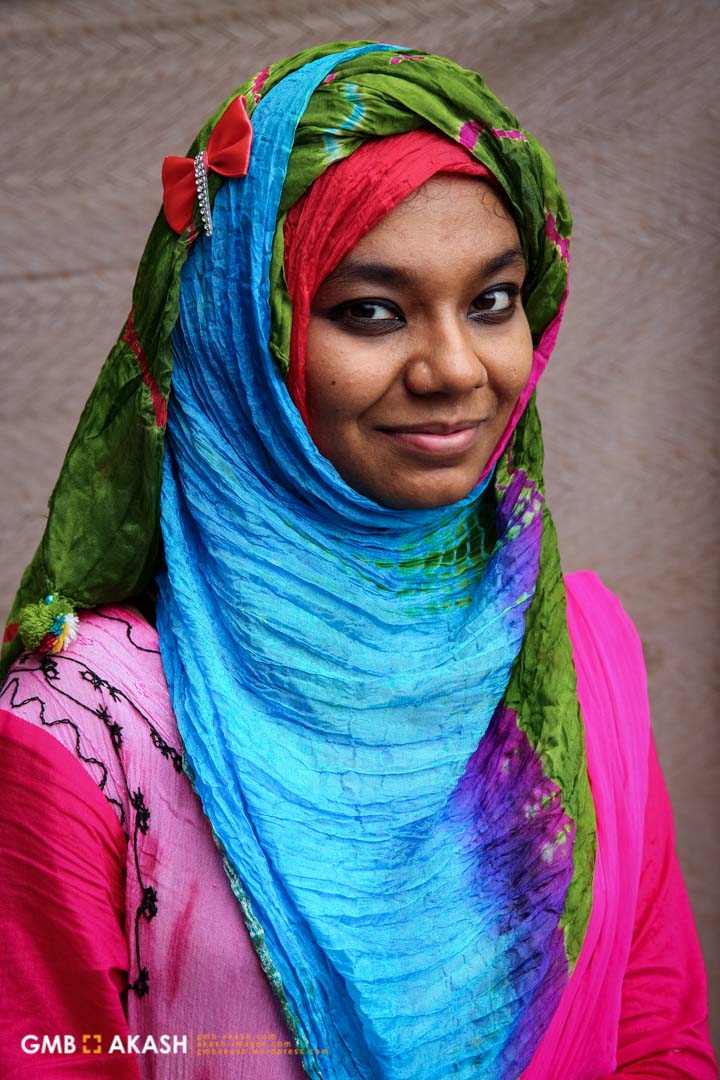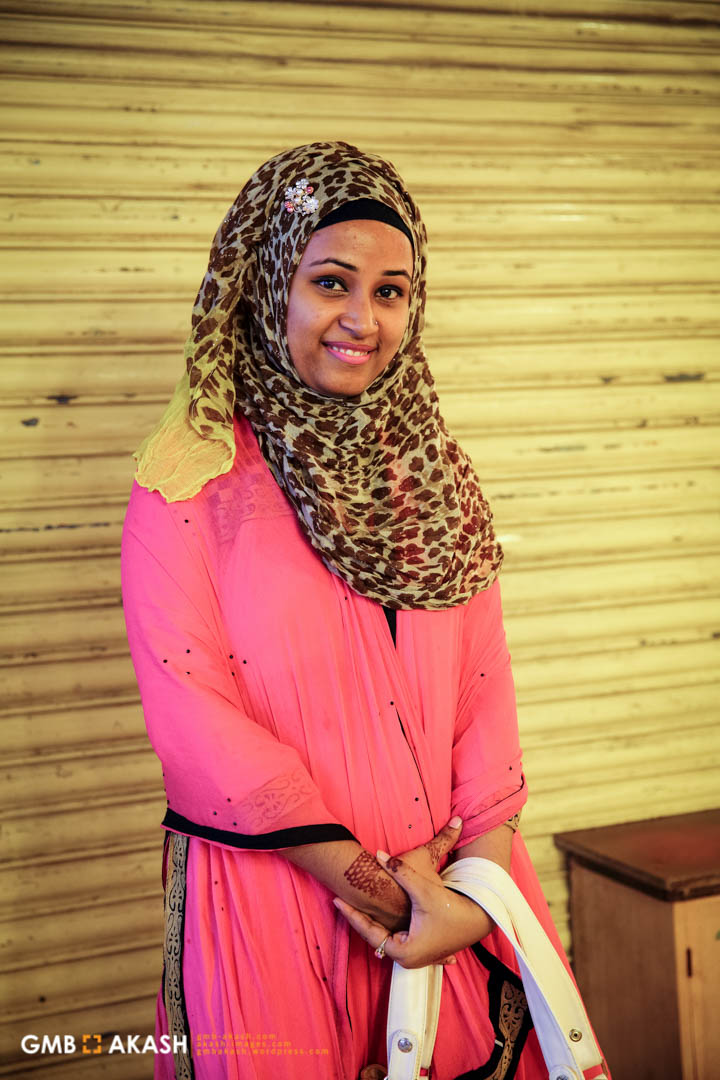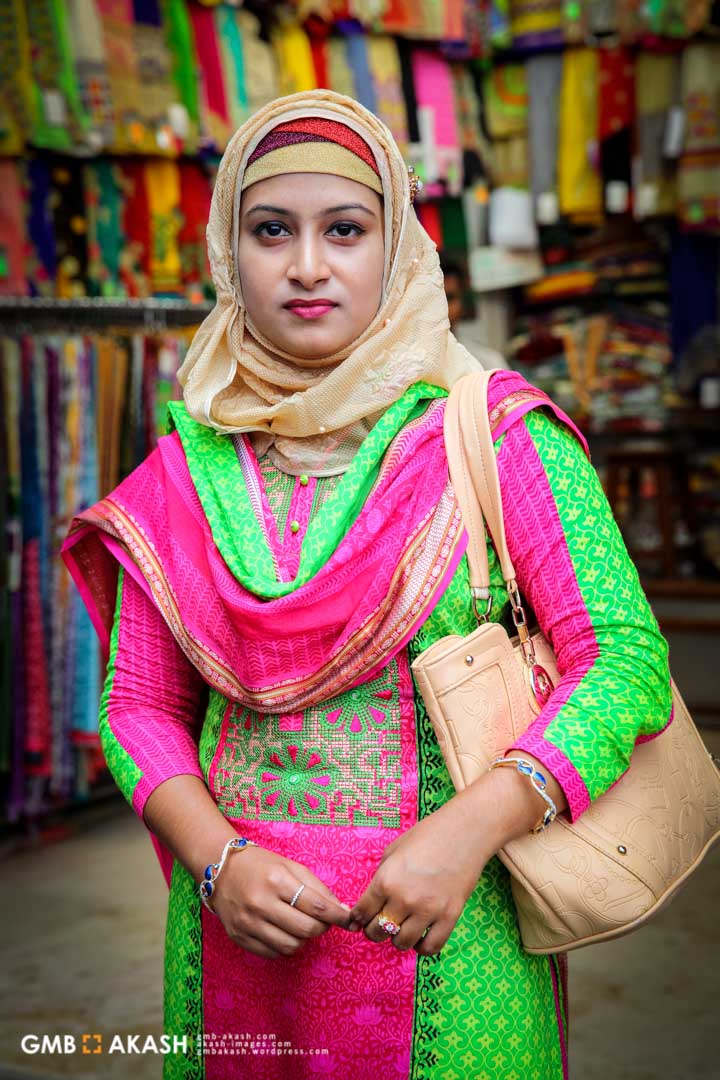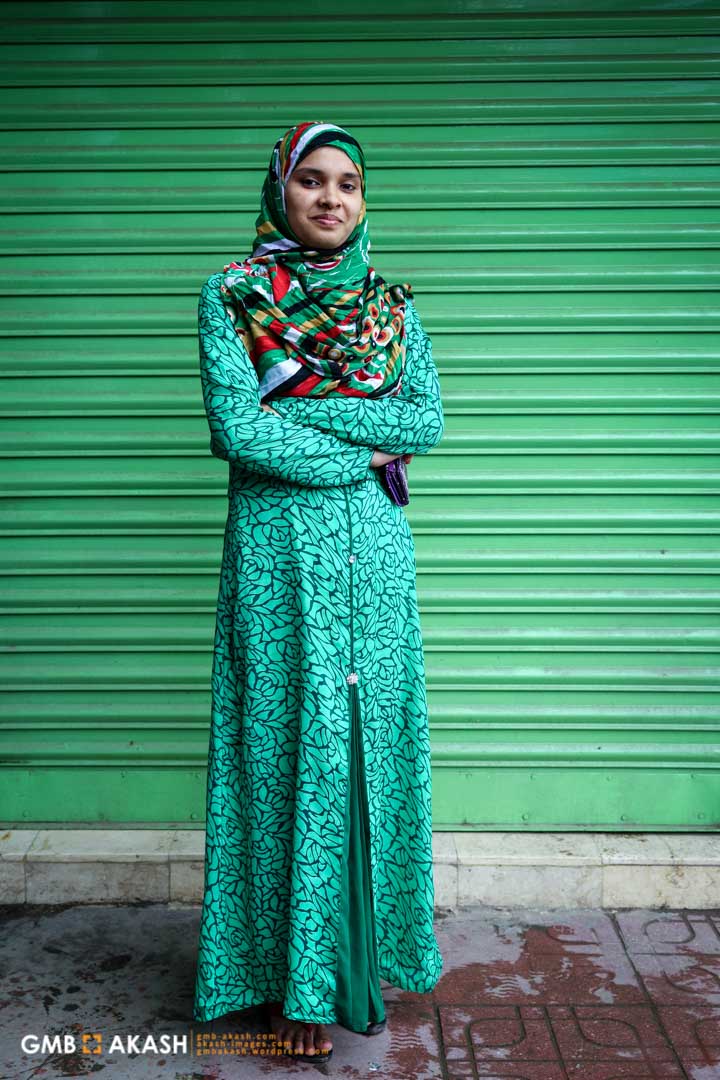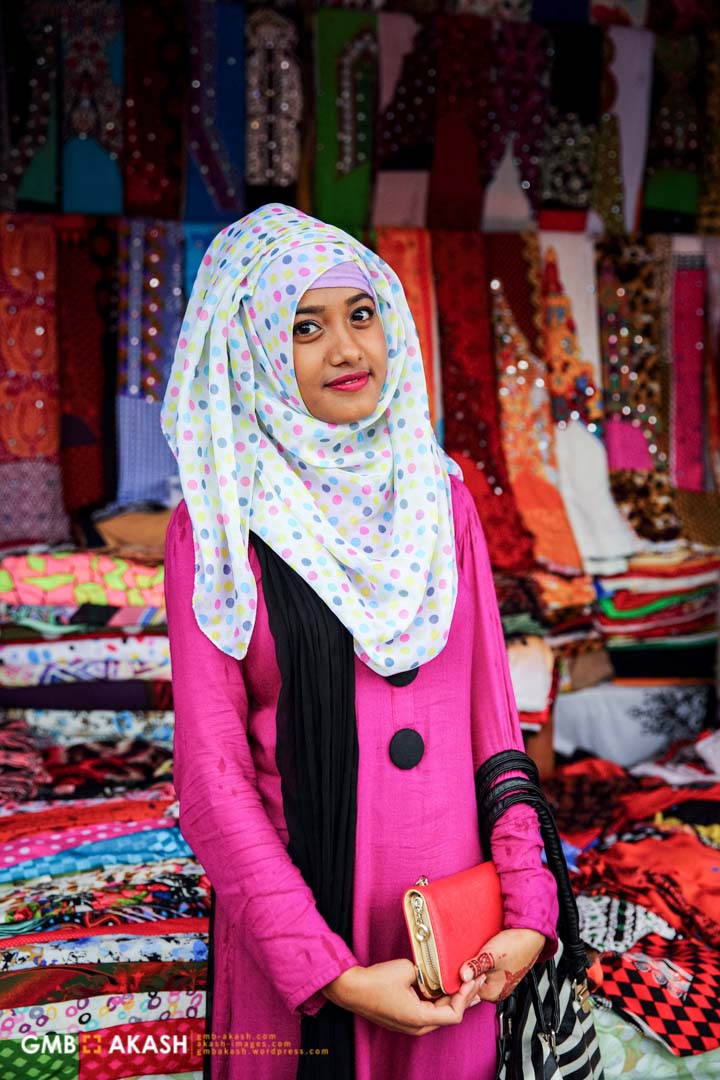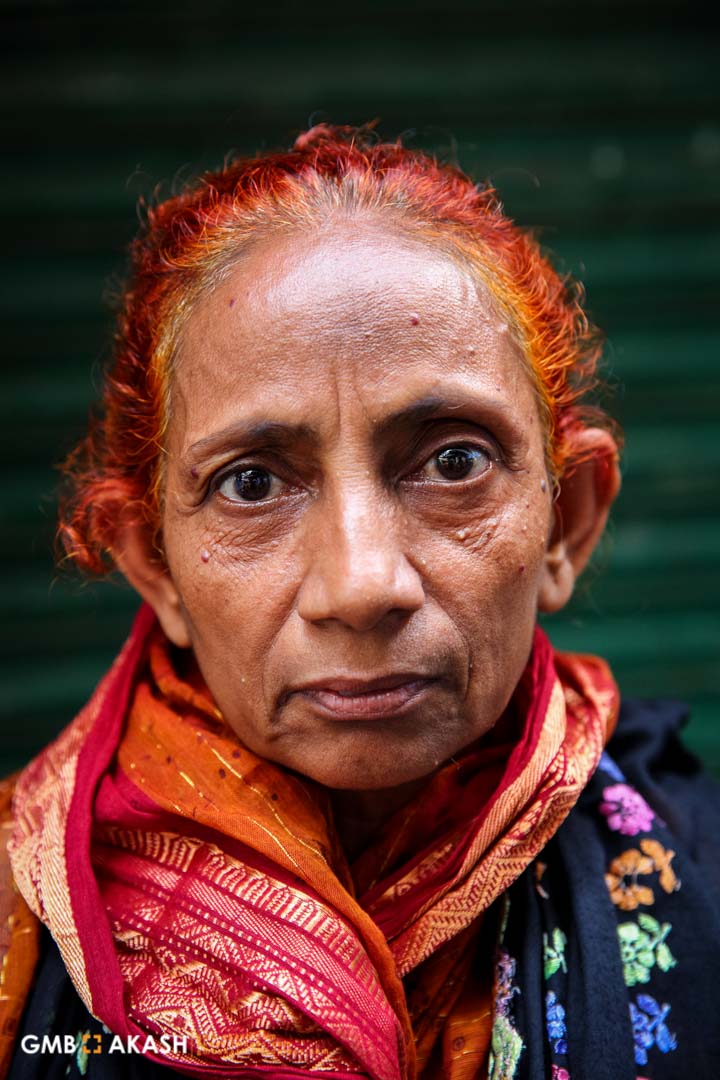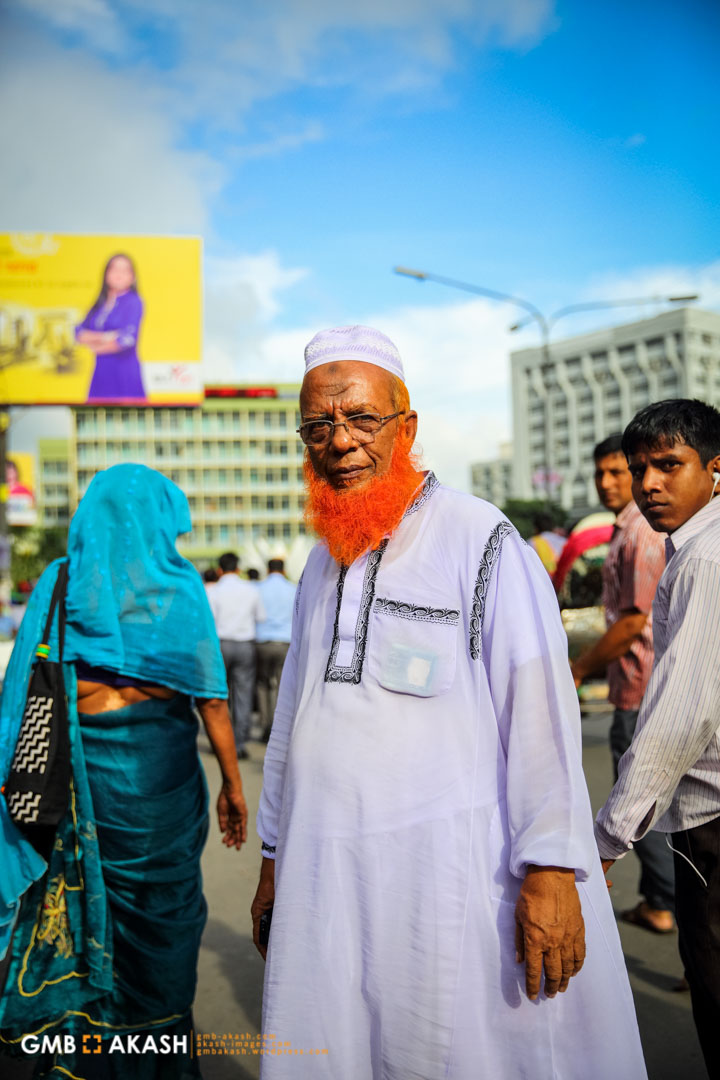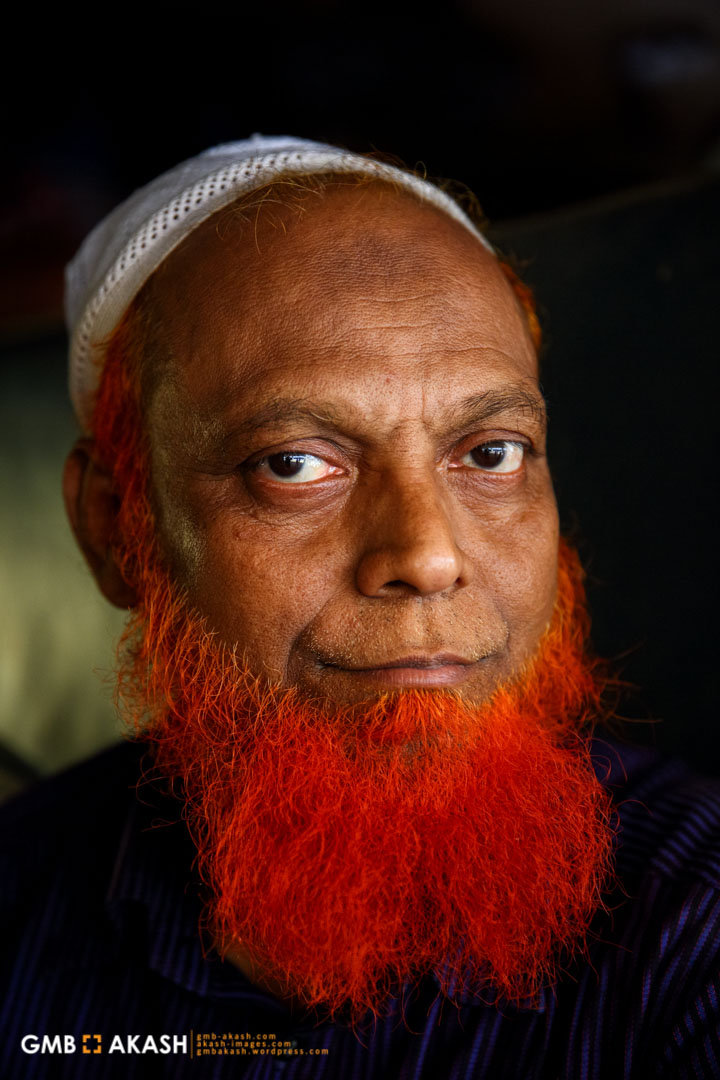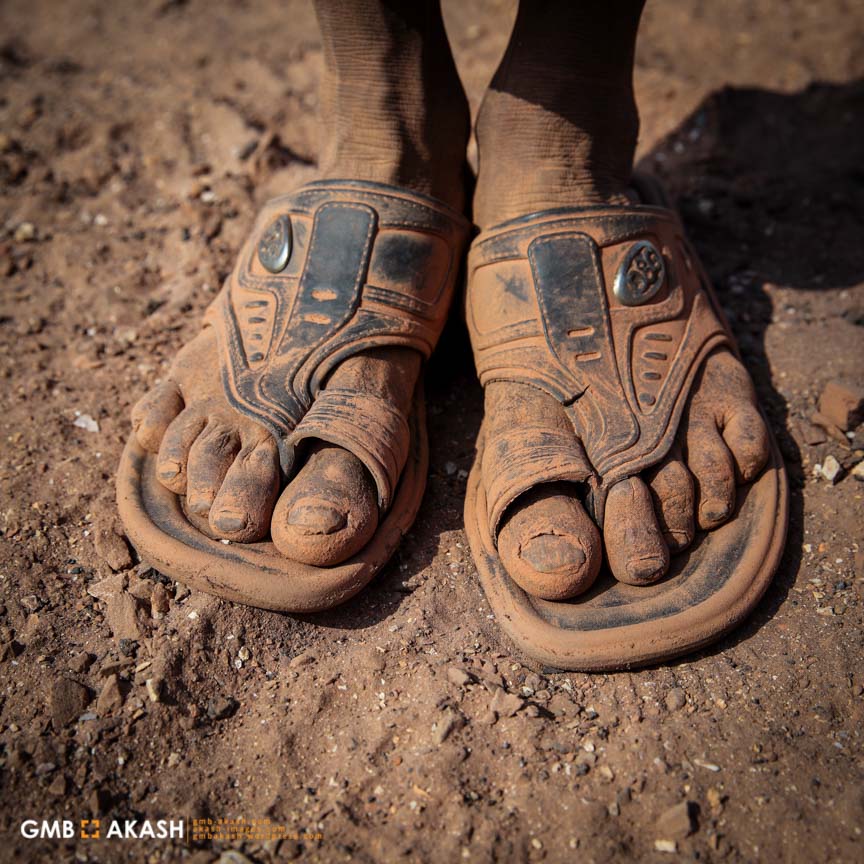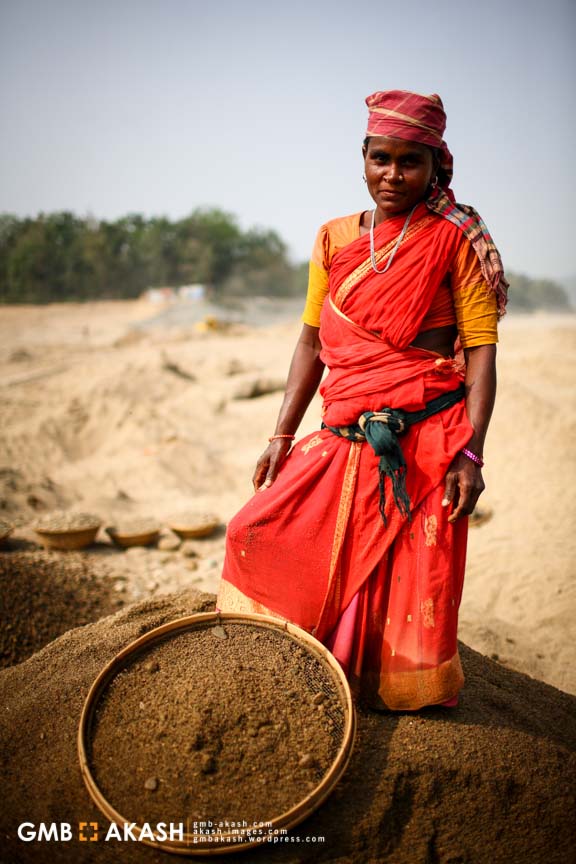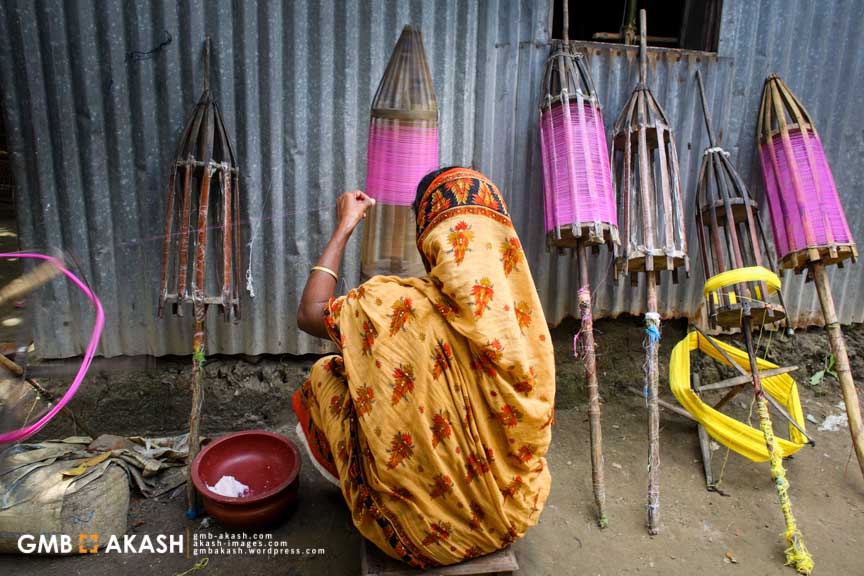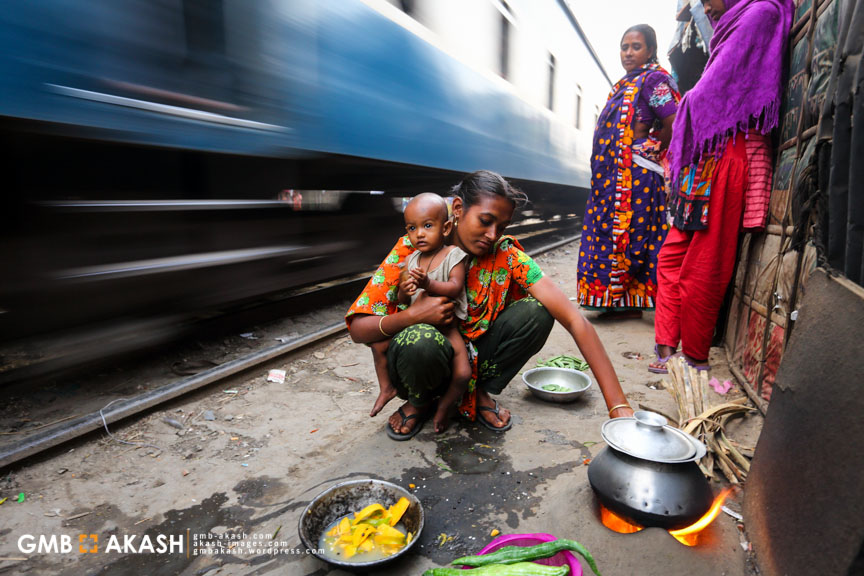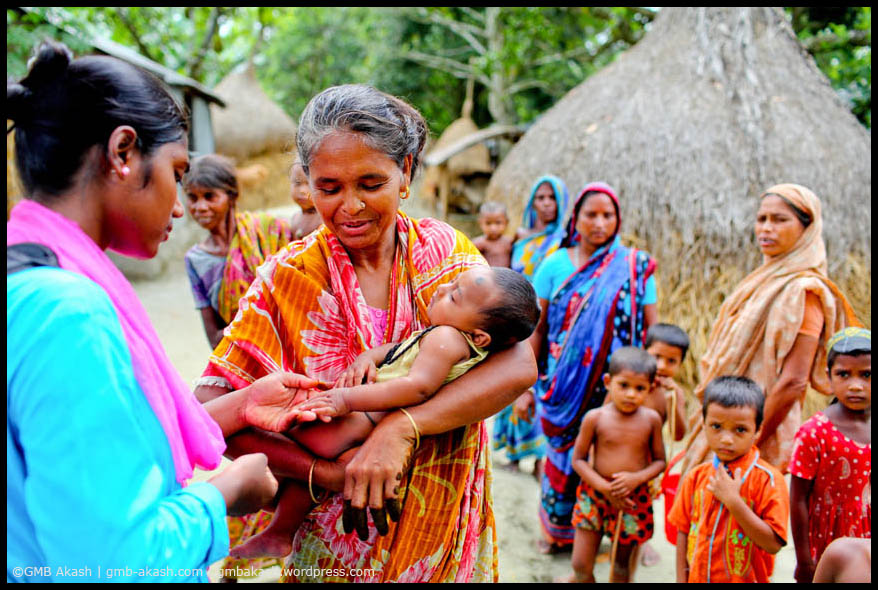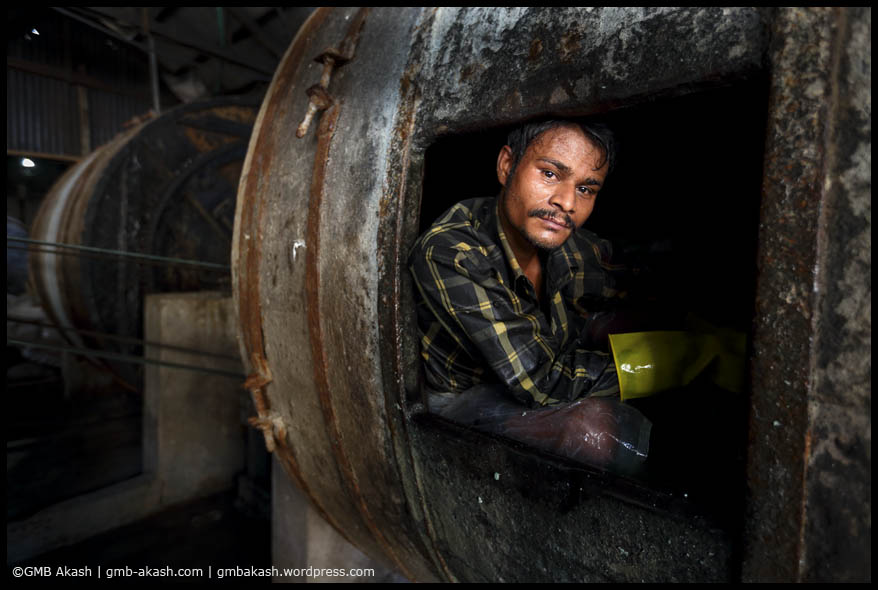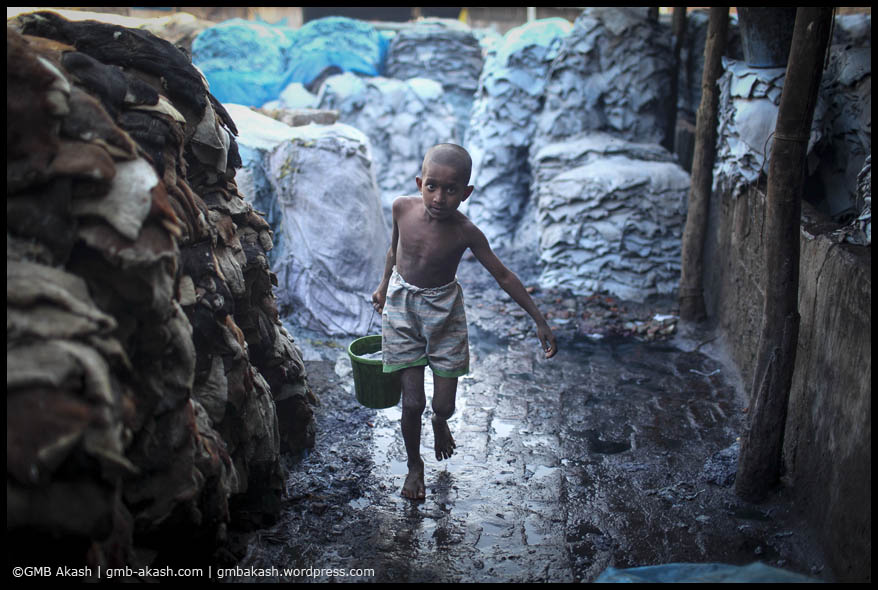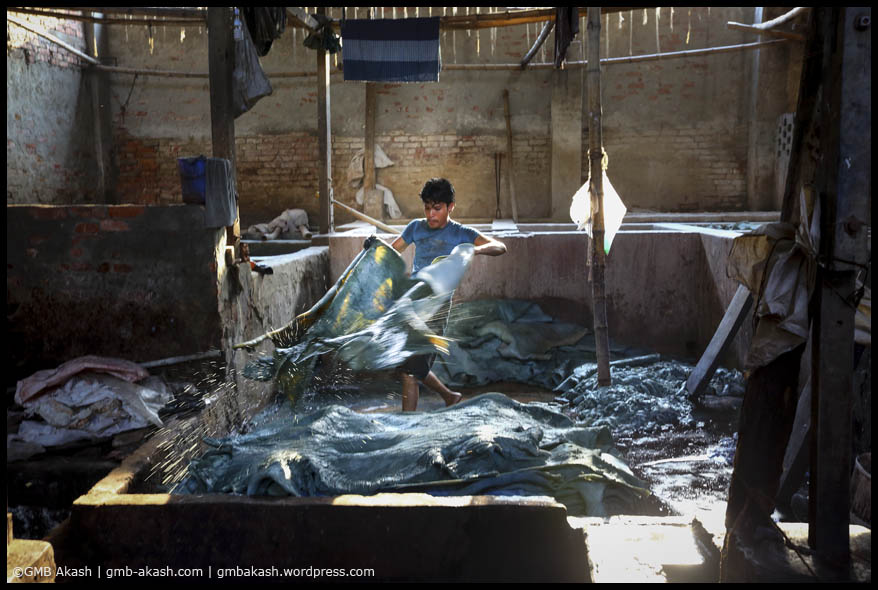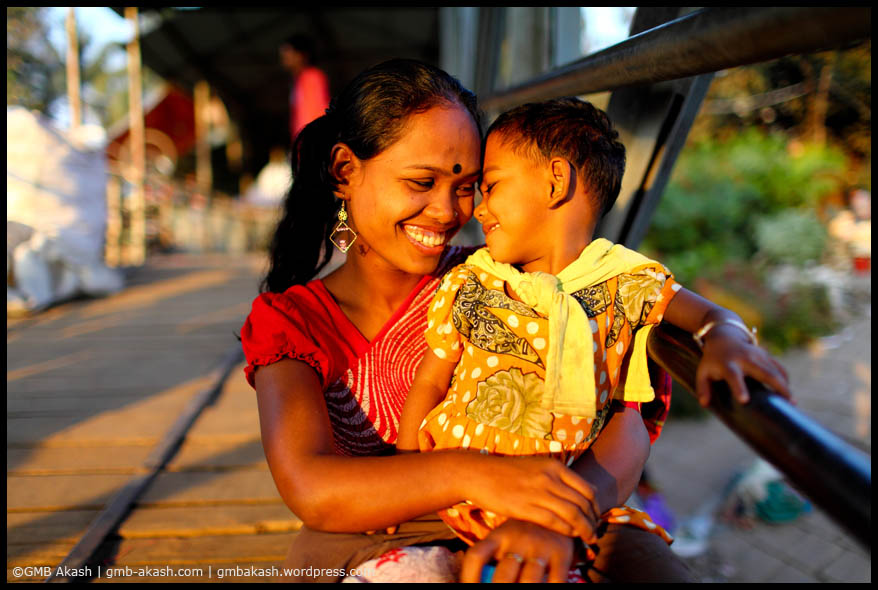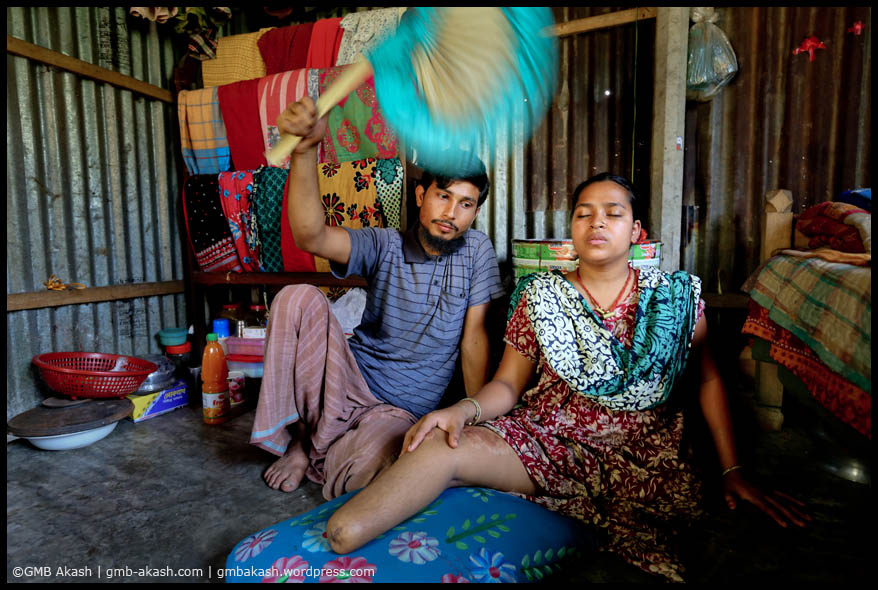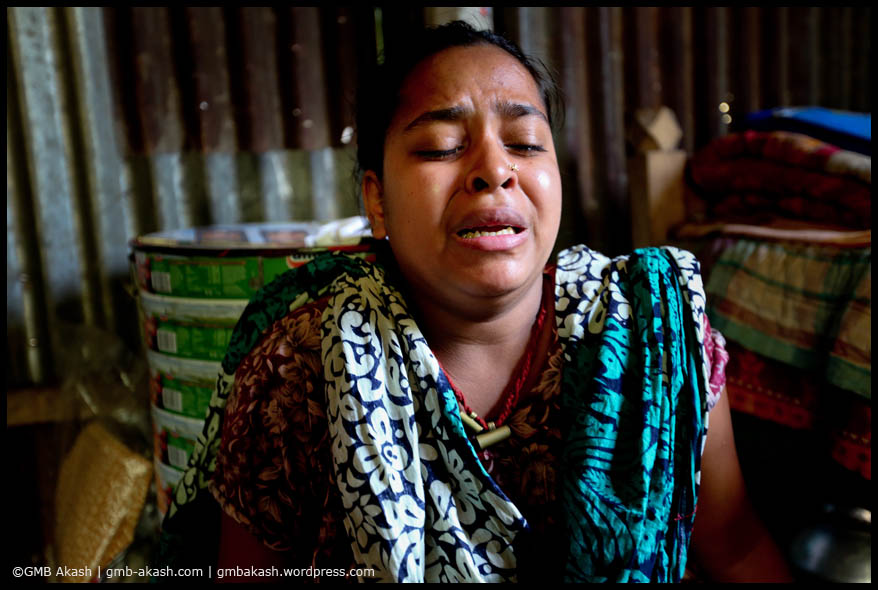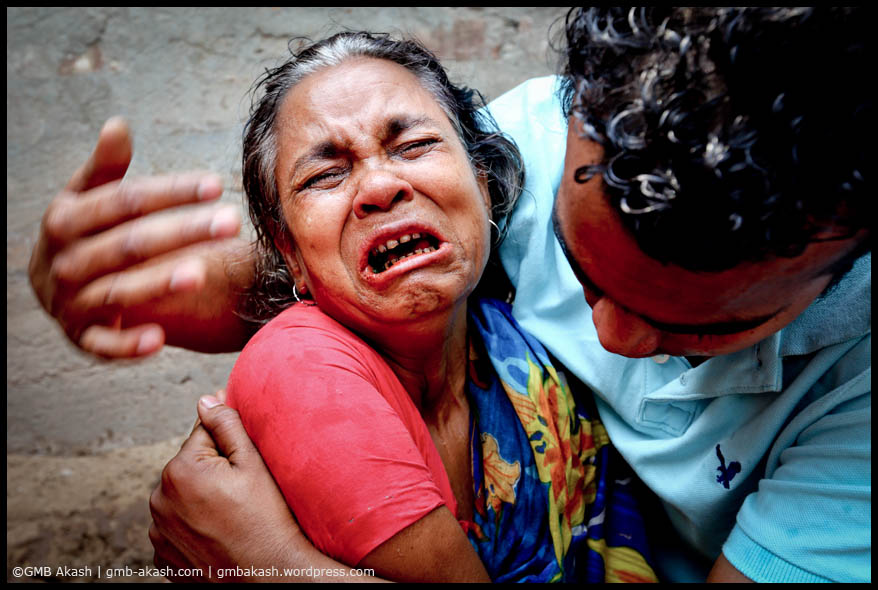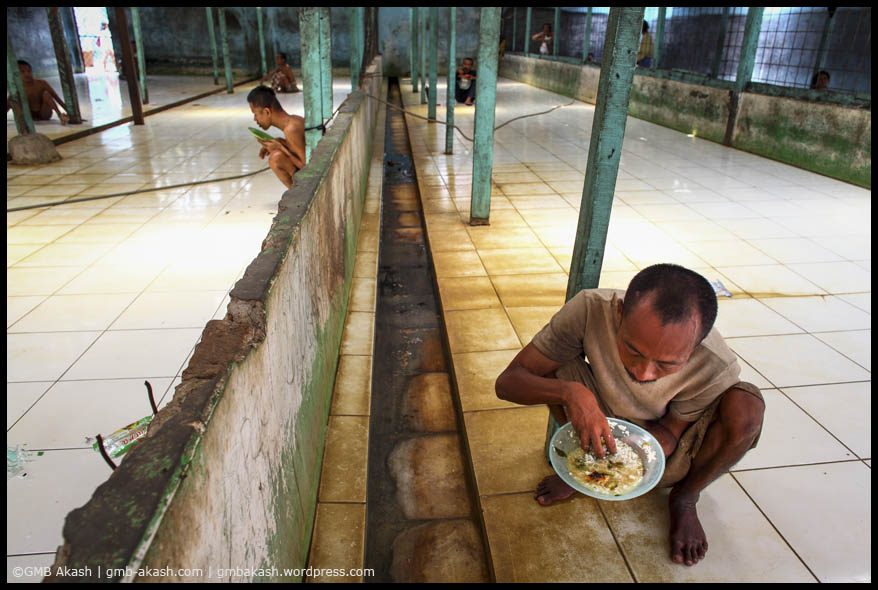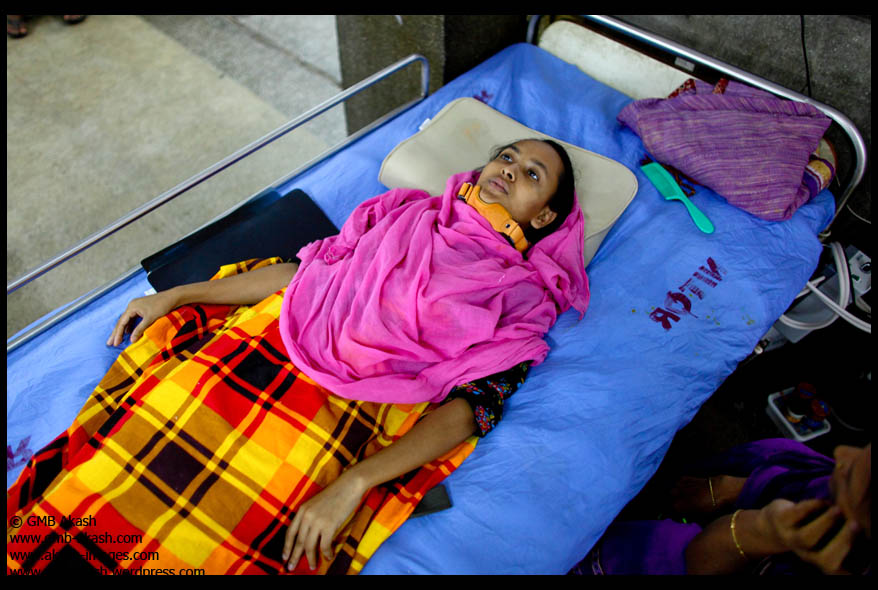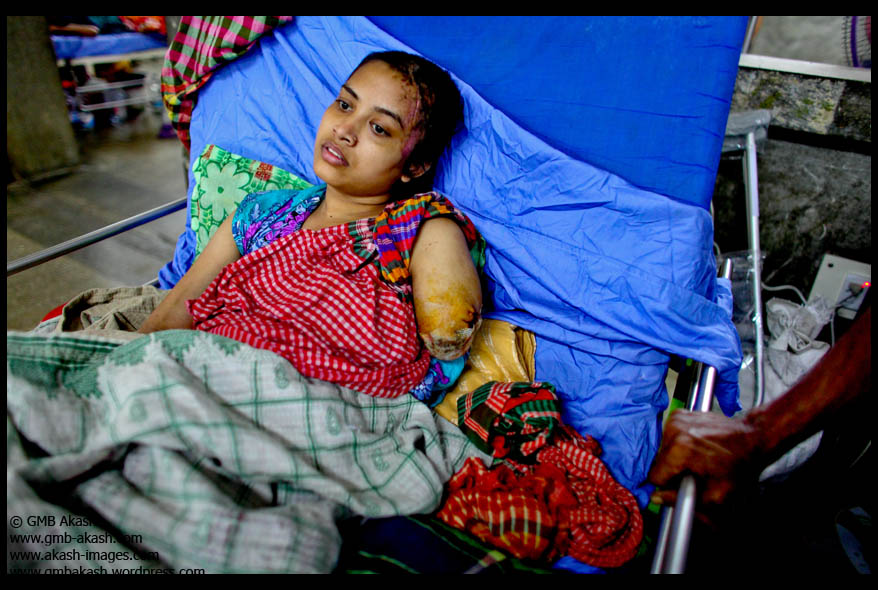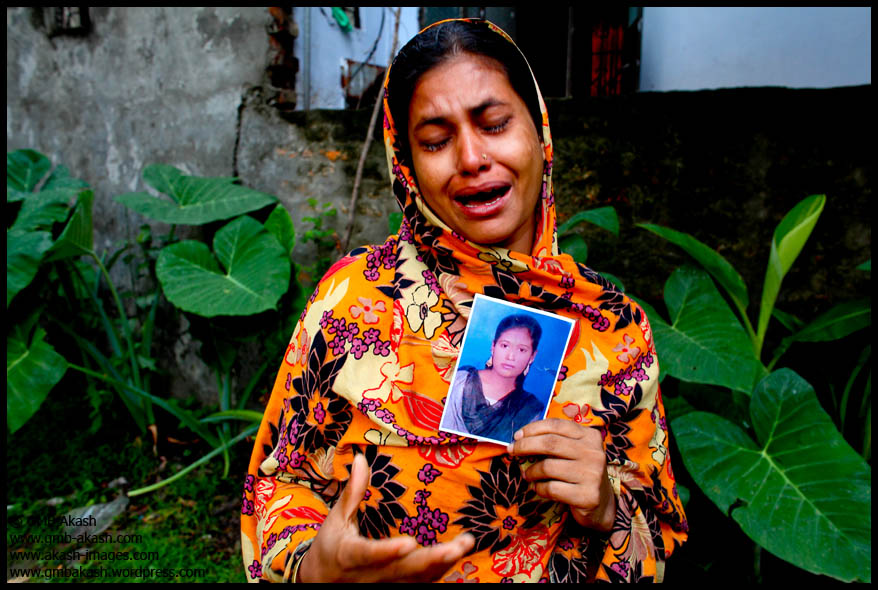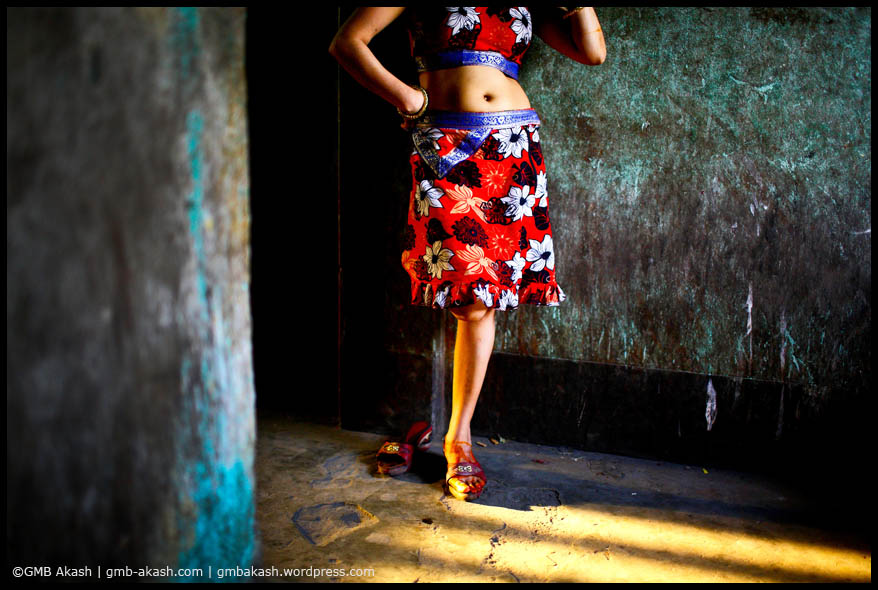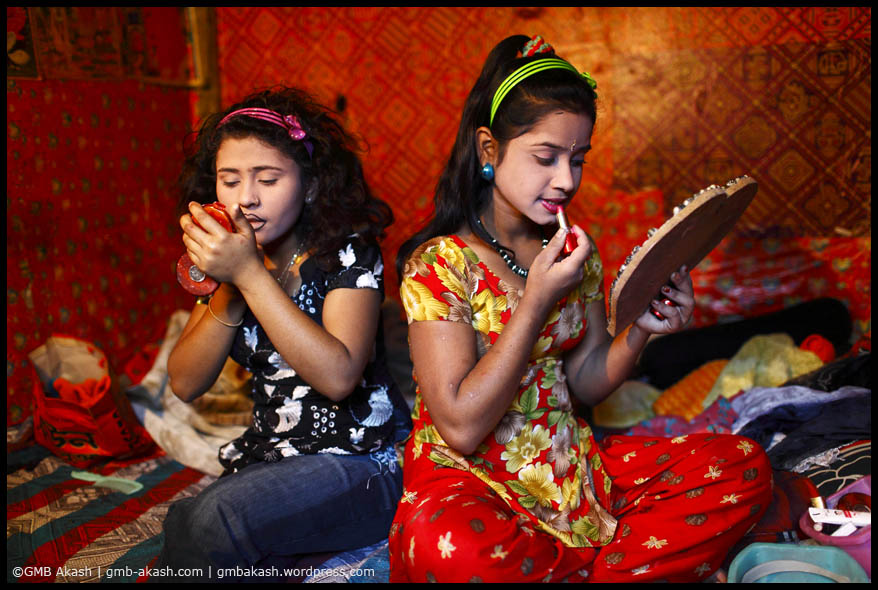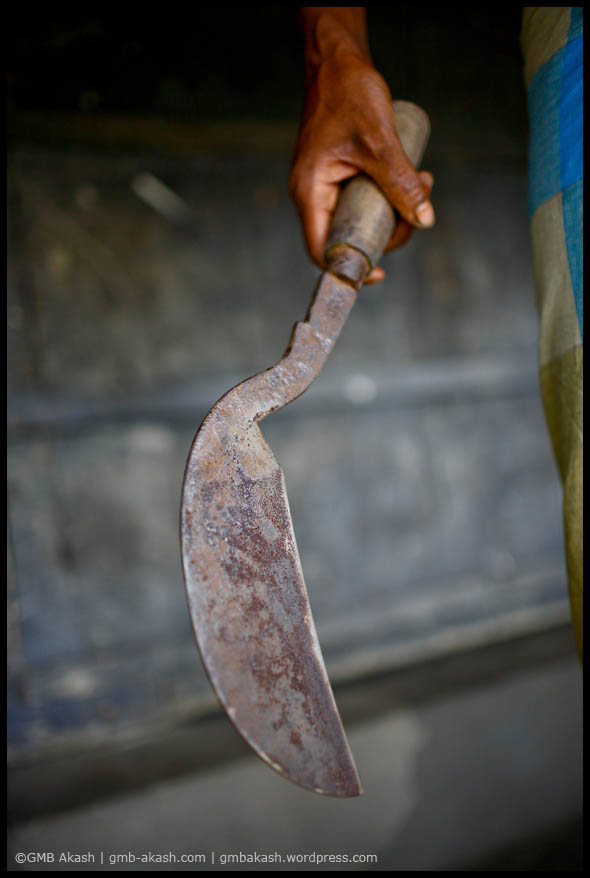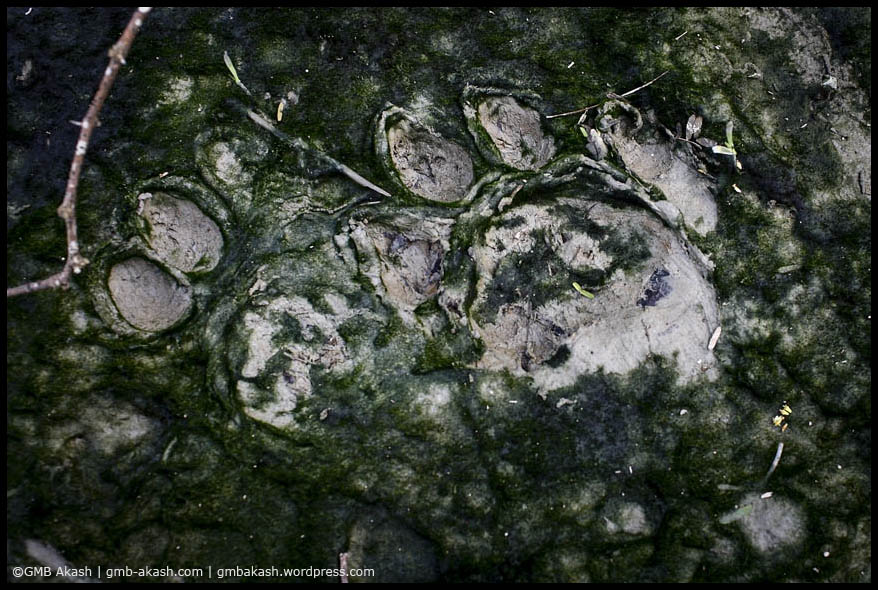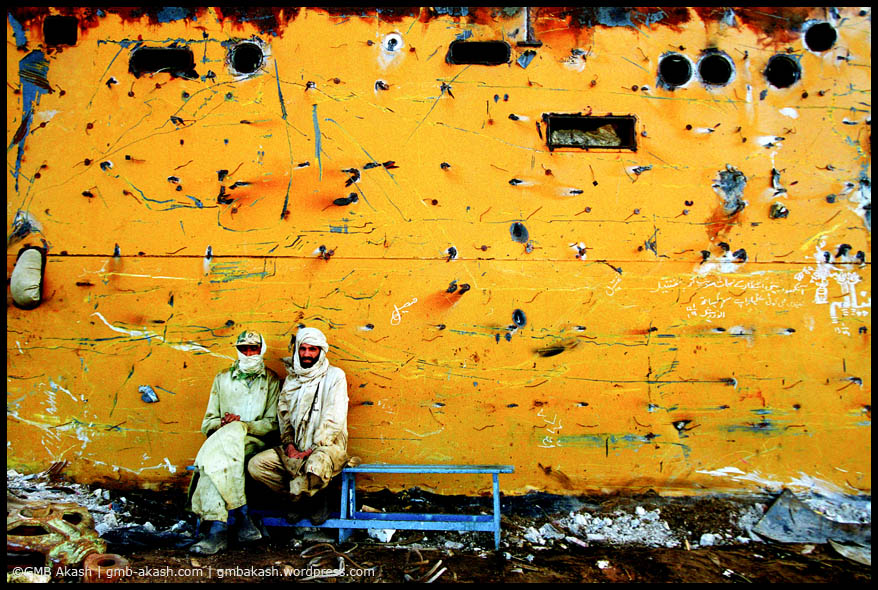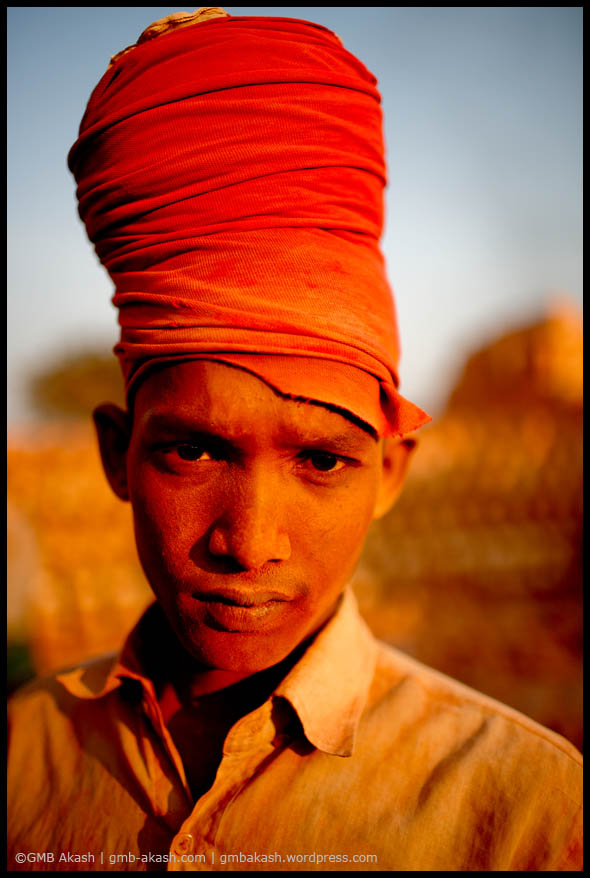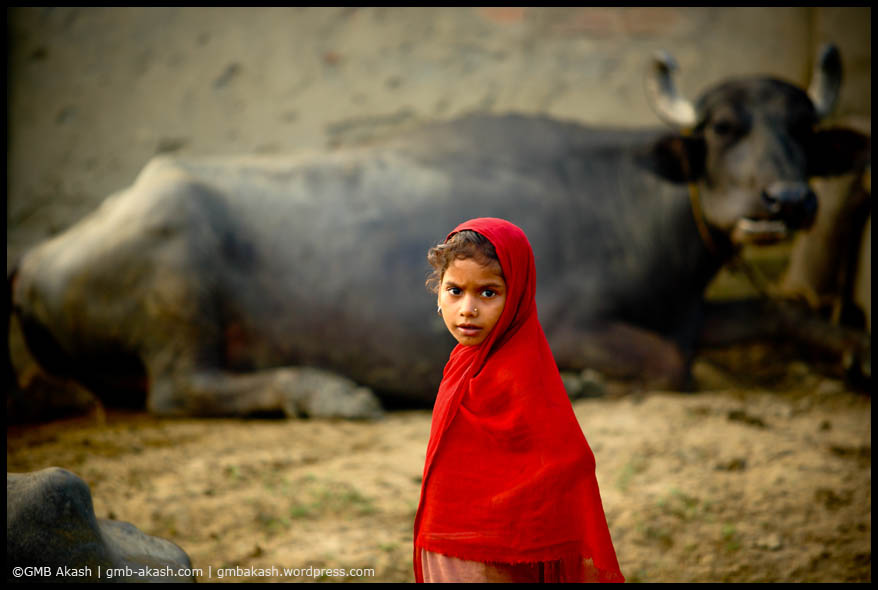Whether you fall or fail, whether you cry or sob, all you can look forward to is that your father believes in you. He picks you up, brushes you off, and lets you try again. Your father will always be your hero.
Sharing ten real life stories of ‘Father’
Featured first on my Facebook page: GMB Akash

Yesterday, I was able to buy a new dress for my daughter after two years. While I handed sixty pieces of five taka note to the seller, he yelled at me by asking if I am a beggar. My daughter held my hand and cried to leave the shop by saying that she did not want to buy any dress. I wept off her tears with one hand. Yes, I am a beggar. Ten years ago I had never thought in my nightmares that I have to live by begging from people. The night coach fell from the bridge and unbelievably I was alive. I was alive by becoming a disable. My youngest son often ask me where had I left my other hand. And my daughter Sumaiya feed me every day by saying she knows how difficult it is to do all work with one hand.
After two years my daughter is wearing a new dress, that’s why today I brought her with me to play for some time. May be I will not be able to earn anything today, but I wanted to roam around with my little girl. I secretly borrowed this mobile phone from my neighbor without informing my wife. My daughter has no picture and I want to make this day memorable for her. When one day I will have a phone I will take a lot of pictures of my children. I want to keep good memories. It’s very difficult to send my children to school, but I am educating them all. Sometimes they cannot attend exam because giving exam fees is not always possible by me. On those days they feel very sad then I tell them, sometimes we can miss exams because the biggest exam is life which we are giving every day.
Now I will go for begging. I will place my daughter in a signal where she will wait for me. I will look at her from distant while begging. I feel shame while she looks at me when I lend my one hand to others. But she never leaves me alone. Because there are big cars, she thinks accident can happen again, these cars could run on me and I would die. Whenever I managed to get some money I return to home by holding my daughter’s hand. We do bazaar on our way and my daughter always carry that bag. During rain we love to get wet and talk about our dreams. In someday I do not get any money, on those days we return to home silently. On those days I feel like to die but at night when my children fall in sleep by holding me I feel being alive is not a bad thing. Only bad is when my daughter waits for me in the signal by keeping her head down. When I cannot look at her eye while begging. But today is different. Because today my daughter is very happy. Today this father is not a beggar. Today this father is a king and here is his princess.
– MD. Kawsar Hossain

I never told my children what my job was. I never wanted them to feel ashamed because of me. When my youngest daughter asked me what I did, I used to tell her hesitantly that I was a labourer. Before I went back home every day, I used to take bath in public toilets so they did not get any hint of the work I was doing. I wanted to send my daughters to school, to educate them. I wanted them to stand in front of people with dignity. I never wanted anyone to look down upon them like how everyone did to me. People always humiliated me. I invested every penny of my earnings for my daughters’ education. I never bought a new shirt, instead used the money for buying books for them. Respect, which is all I wanted them to earn for me. I was a cleaner. The day before the last date of my daughter’s college admission, I could not manage to get her admission fees. I could not work that day. I was sitting beside the rubbish, trying hard to hide my tears. All my coworkers were looking at me but no one came to speak to me. I had failed and felt heartbroken. I had no idea how to face my daughter who would ask me about the admission fees once I got back home. I am born poor. I believed nothing good can happen to a poor person. After work all the cleaners came to me, sat beside and asked if I considered them as brothers. Before I could answer, they handed me their one day’s income. When I tried to refuse everyone; they confronted by saying, ‘We will starve today if needed but our daughter has to go to college.’ I couldn’t reply them. That day I did not take a shower, I went back to my house like a cleaner. My daughter is going to finish her University very soon. Three of them do not let me go to work anymore. She has a part time job and three of them do tuition. But often she takes me to my working place. Feed all my coworkers along with me. They laugh and ask her why she feeds them so often. My daughter told them, ‘All of you starved for me that day so I can become what I am today, pray for me that I can feed you all, every day.’ Now a days I don’t feel like I am a poor man. Whoever has such children, how can he be poor! – Idris
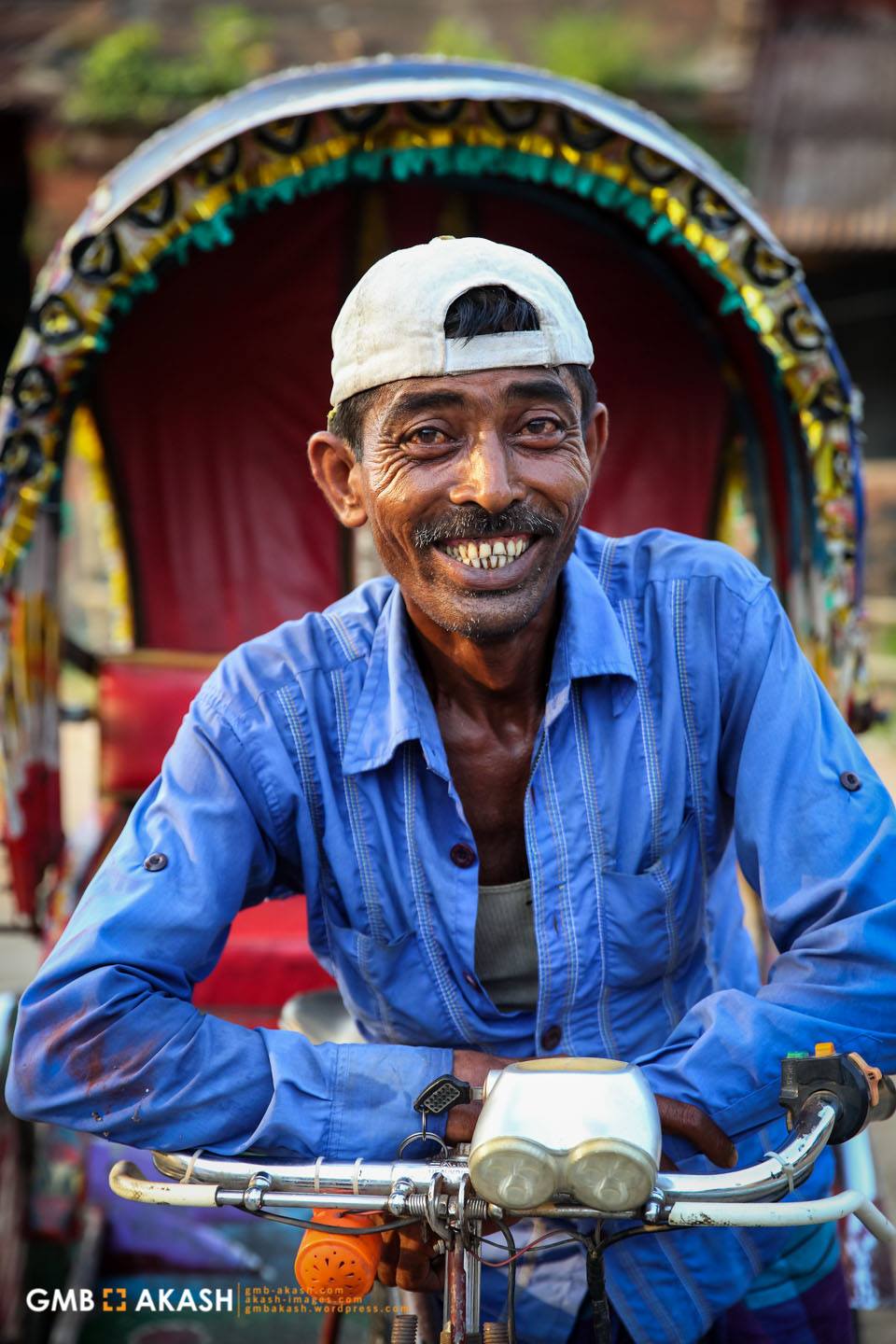
We always wanted a daughter. But we have three sons. I often told my wife only fortunate have daughter. I am working as a rickshaw puller for more than thirty years. Most of my passengers were bad tempered. They always scolded me. One morning a father hired me to take his daughter to the college. He requested me to be careful in the road. He told his daughter to hold the rickshaw tightly. Before we left he told me to go slowly so the girl may not get hurt. On our way after sometime I heard the girl was crying insanely. I tried to look back and wanted to ask her if everything was okay. She scolded me and warned me not to look back. After a while she asked me to stop and started calling someone by her phone. She was screaming and crying all the time. I understood she supposed to escape from home with a boy. He did not show up. Suddenly she jumped from the rickshaw, left the money in the seat and quickly went to the train line. I was about to leave, felt sorry for the father and thought it may be good not to have a daughter. But I was not able to paddle further; I heard her father was requesting me to be careful. I parked my vehicle and ran for the girl. She was in the rail line, moving like a sick person to harm herself. I went near to her and requested her to go back with me. She yelled at me, called me uneducated stupid, in between she kept crying insanely. I was afraid to leave her in that empty place. I let her cry, as much as she wanted. Almost three hours we were there and rain was about to come. Before the rain starts she got up and asked me to bring the rickshaw. We did not talk about anything. In the rain I paddled quickly. I dropped her near her house. Before I left she stopped me and said, ‘Uncle, you should never come at my place again, never tell anyone you know me.’ I lowered my head and returned to home. That day I did not talk to anyone, I did not eat anything. I told myself it was better not to have a daughter. After more than eight years, very recently I had an accident. I was kind of senseless. Public took me to the hospital;. When I got back my sense I saw the girl was working near me, she asked me how I was feeling, why I never went to meet her. It was hard for me to recognize the girl in white dress, in spectacle and stethoscope. My treatment went well. I was taken to a big doctor. I was listening to her telling him, ‘Sir, he is my father’. The old doctor told her something in English. Then she touched my injured hand and replied him, ‘If this father did not support me in the past, I won’t be able to become a doctor’. I was lying in a narrow bed and tightly shut my eyes. I cannot tell anyone how I felt. This rickshaw puller has a daughter, a doctor daughter.
– Bablu Shekh (55)

Six years ago my daughter ran away with a boy. Their married life was one month. After one month the boy disappeared. I found my daughter after three months. When I found her, she was living in the same slum room they rented and discovered something is very wrong with my child. She was abnormal and three months pregnant. I decided to stay at the house with her without forcing her to come with me. I slept in the floor and she slept in the bed. Every night she wake up and screamed by asking me to open the door as she felt the boy is knocking at the door. For every single time I opened the door and showed her there was no one.
After one year we returned to village with no mental improvement. She held her new born boy in her chest and never let anyone to take him, as she used to think the child may leave her as well. A year ago I got a marriage proposal for her. My son-in-law was a widow and had four little children. Everyone told me not to share anything about my daughter’s mental condition. I also realized I would never tell it to him including hiding about her son.
But when we were fixing the wedding date I was feeling like a criminal. The moment the groom was leaving I stopped him and took him to the river side. I opened my heart and started to tell what I had to say at our first meeting. He stopped me and said he knew everything. I was surprised and asked him how. He said the day he met my daughter she said everything and he really wanted to marry her. He left and I rushed to my daughter. I asked her what she said, she reluctantly told me, I said – ‘I am Nahar. I have mental problem. I scream at night to open door and ask to check if someone is knocking. Except this I am all okay. I also have a five years old son, whom I will take with me after we get married.’
My daughter is married for a year now, taking care of her five children wonderfully. This cow was their wedding gift which my son-in-law did not take with him. He told me to keep the cow for myself. No, my daughter is still sick. During my last visit when I asked my son-in-law what he do when Nahar screams. He said, ‘Every night I take her outside to show there is no one’. Tears were rolling all over my face when he assured me, Nahar will be okay. I also know my child will be cured. Because love is the best medicine which my daughter is receiving abundantly.
– Ali Noor

I grew up vulnerably, struggled like an animal because I was an orphan. I ate people’s left over and sometimes snatched food from animals. I had no home and no one ever touched my forehead to check my fever. I hated everyone, every face I met. I only survived for myself, and only cared about me because I was no one for anybody. I suffered for the lack of love more than food. And with time those emptiness went deeper and I stopped laughing, dreaming and hoping. Like a donkey I worked as a labouer in people’s field, at night slept with cattle. For everyone I was a labourer. Only our village doctor was different. He often forcefully took me to his home and asked her only daughter to feed me well. It was very irritating for me because I never ate inside a house; never sat in chair and table. No one ever fanned me while serving food. Doctor’s girl continually talked to me about useless things, about things I never knew exist in the world. Most of the time, I nicely asked her to go back to her study but she always giggled and continued her nonsense while feeding me. Whenever I looked at the girl, I felt if I ever had a daughter she would look exactly like her. She never let me to leave the house without having sweets after lunch. She would come far with me by holding an umbrella and always requested me to go again. Most often my eyes got wet for no reason and I ran away without replying her. The day I last saw her, she was lying in her bed, her skin turned pale, hair was short and eyes were puffy. For the first time, I talked to her first, asked her how she was feeling. Like every day she giggled and said, ‘I become rich uncle, I got a rich disease.’ Her father asked her to stop talking and within minutes she started vomiting blood. I escaped the place without saying her any word. At night I secretly met our doctor, handed him my sixty years savings, asked him to take our daughter any place where nothing will be able to take away her smile. It’s been three months they had gone, I heard she is improving. There is still fair chance of her survival. I have been waiting at this river side every day, with a hope of their arrival. I know my daughter will come back. She will again force me to eat more. She will laugh loudly and say, ‘Uncle, do you know you got a cold heart’.
– Rohmot Miah

I was a honey collector. I was never afraid of tiger or crocodile. And I had a beautiful daughter. My daughter could dance like a peacock. She was like a goddess of the forest. Before I could return from work she used to stand in the jungle and every day waited for me. She could win anyone’s heart with her childishness. But after the death of her mother, she could not talk since childhood. Being a poor father I was unable to take her for treatment. I still can remember her smile; with her smiles she could conquer all my sorrows. It was a rainy day of monsoon. I was coming to the home and expecting Pari on my way. But she was not there. After a twenty minutes search I found her. She was hanging from a tree, her clothes were torn apart. My child died before I arrived. I was screaming in anger, I was trying to kill everyone who appeared to console me. My child’s death still haunts me. Nowadays I spend all evening in the jungle as a guard so that no one ever lose any daughter again’ – Kashem

I earn very little from my job. I work in a factory. So, I could not save anything. I have to meet my children’s educational expenses and my old mother’s treatment. That time my elder son finished his college and admitted into the university. Then all the time he was very sad. After many questions his mother hesitantly informed me that he wanted a laptop. I became very angry and shouted by asking, does money grows in tree. But at night I could not sleep. All the time I felt like all other children will do good result because of a laptop and son will roam around in depression. How is it possible till I am alive! Between the time my son returned home at late night, when I asked him why he replied briefly that due to group assignment he had to go in friend’s house. My son did not look into my eyes. It started hurting me lot. I went to my boss and asked him to give me the night job. He exclaimed in doubt how I could manage both day and night shift. I assured him this will be only for four months. I had to walk one hour to go to work and only returned to home once for dinner. I did not share anything at home, just said them I am paying off my loan. After four months I went to my home with bundles of money in my pocket. I was happier than ever and keep thinking how I will explain to my son what a father can do. After entering at house I saw a cycle standing at our yard. Everyone came out after listening me. My old mother giggled and said, ‘Have a look, your son bought a cycle for you by his scholarship money.’ My son was standing in front of the door by looking at the ground. I wanted to take him in my arms and roam around the entire city again just like we did often when he was a child. But a father cannot express his heart so easily. Even if a father feels to cry, they cannot do it like mother’ – Razib’s Father

Tuni got married with my son when she was in a stage of playing with doll. Her widow mother could not provide food for Tuni and upon her request I agreed for the marriage. While Tuni’s mother handover her in my hand, she said, ‘From now, your father-in-law is your father.’ By opening her long veil little Tuni nodded to us. On our way back to home, Tuni fall down in the wet mud and started crying. To stop her crying I was holding her with my one hand and carried her mud toys in another hand. With time, my eight years old daughter-in-law turned eighteen years. My wife and daughters used to hate our daughter-in-law. Even my son never spoke to her nicely in all those years. In a poverty stricken family, I was too helpless to help Tuni. Sometimes when I heard my son to beat her, I rushed to her door and knocked vigorously to help her, but she always replied, ‘I am fine, Abba’. She was more than a daughter to me, during one winter I had pneumonia, every day she cleaned my blooded vomiting with her hands. There is no one who can be so much caring like my little girl. But she was alone, was living inside her own world. Then one day she apparently became lonely when my son died in a boat incident. Everyone blamed her for his death. She started wearing white saree and I could not look at her condition anymore. Torture of wife and daughters exceed all limits. Neither her family visited her for those ten years. One day, our village doctor came to me; he was a young man, who came from a foreign village. After long period of hesitation he said he wanted to marry Tuni. I stood up in anger, and asked him to leave. No widow ever get married in my small island, how could I agree to break societies standard. I could not sleep for whole night, and then next day I declared I will arrange for Tuni’s re-marriage. Every day I faced people’s questions and humiliation, but I was strict to my decision, because I saw a spark in my daughter’s eyes. The night before marriage, all reputed people came to me and asked to withdraw the marriage. When I declined, everyone told me that they will abandon or evict my family forever, I accepted with laughter. With them, my wife and daughters also left the house and left me alone. I asked Tuni to sleep deeply as she had to start a new life the next day. She assured me that she will solve all my worries. Next morning I found her blue body in the ground and a poison bottle next to her. Tuni left the world with all her sufferings. I tried to hold her hand just like the day when she fell into the ground. That day Tuni was crying but after her death I clearly saw a slight smile on her face like she was saying me, there is no pain anymore, Abba.
– Ansar Ali

I did not get time to mourn for my wife’s death. I could not cry by remembering her memory that very moment. Life didn’t allow me to do all that. My wife had left our daughter to me in her form. When midwife handed me my daughter she was a premature baby, maybe she was just two kg. I had never take any child in my lap, but when I held her first time, I could not drop her off in the bed, I closely kept her with my heart. People used to say, new born searches for their mother’s smell or wants to hear the sound of mother’s heartbeat. But my daughter was fully aware of mine.
When she started crying for milk, I was unable to buy anything. I kept going from door to door to the village women who can generously breastfeed my baby. After seeing my tears no one said no to me. But at night it was hard. She cried for milk and I could not provide her anything. I did not sleep for one hour at night throughout her one month age. When she went to sleep, I used to check her breathing with my finger and checked frequently if she is alive or not, sometime in fear I held her in my chest, as I did not want her to leave me.
When villagers tell me I should give her cow milk at night, I could not buy bottle for her. I had no money. I collected an empty medicine bottle and borrowed a nipple and then fixed both together. With that bottle I feed her cow milk every night. When only mothers queue to vaccinate their child, I was the only father who queued with daughter. By thus I do not know how twenty years had passed. Now my daughter is a teacher in the primary school. She did not want me to work in the field anymore, she is taking care of our expenses, and all the time she wonders why I work in the field. I do not want to share that, I am saving for her. What will happen to her when I will die? I wanted her to get married, to start a life with someone she loves. But she is reckless; she said if someone accepted me with her then only she will get married. I do not want to explain her it is not possible in the world we are living. I want her to be loved by someone unconditionally, I want her to get such love which is more powerful than the love I have given her. This is my last wish to God.
– Joyed Ali (50)

I found out my daughter had an affair with a boy for five years. She never spoke about it as she is always afraid of me. Apart of it I assumed my children always hate me for the job I am doing since my childhood. I asked her to bring the boy and his family in our house. I decorated the house like a new bride and brought the best food for them. I have been saving for my daughter’s marriage for twenty years. That day my daughter was happiest than ever. When they started conversation they brought out a note of demand. They wanted all material things a family needs, I was calculating and nodded in agreement with every word they said. After all it’s about happiness of my daughter. The last point was they do not want me to introduce in front of their relatives and I should never go to visit my daughter. The moment they said it my daughter screamed in anger and by surprising all she slapped the boy. She angrily said, ‘My father can do the thing that no one can do. Not everyone can clean others mess. I am proud of what he does and if you do not leave my house in a minute I will beat you all.’ She broke the marriage proposal and ended her five years relationship in a second. From that day I know how fortunate and happy person I am.’ – Sweeper Monu lal









































































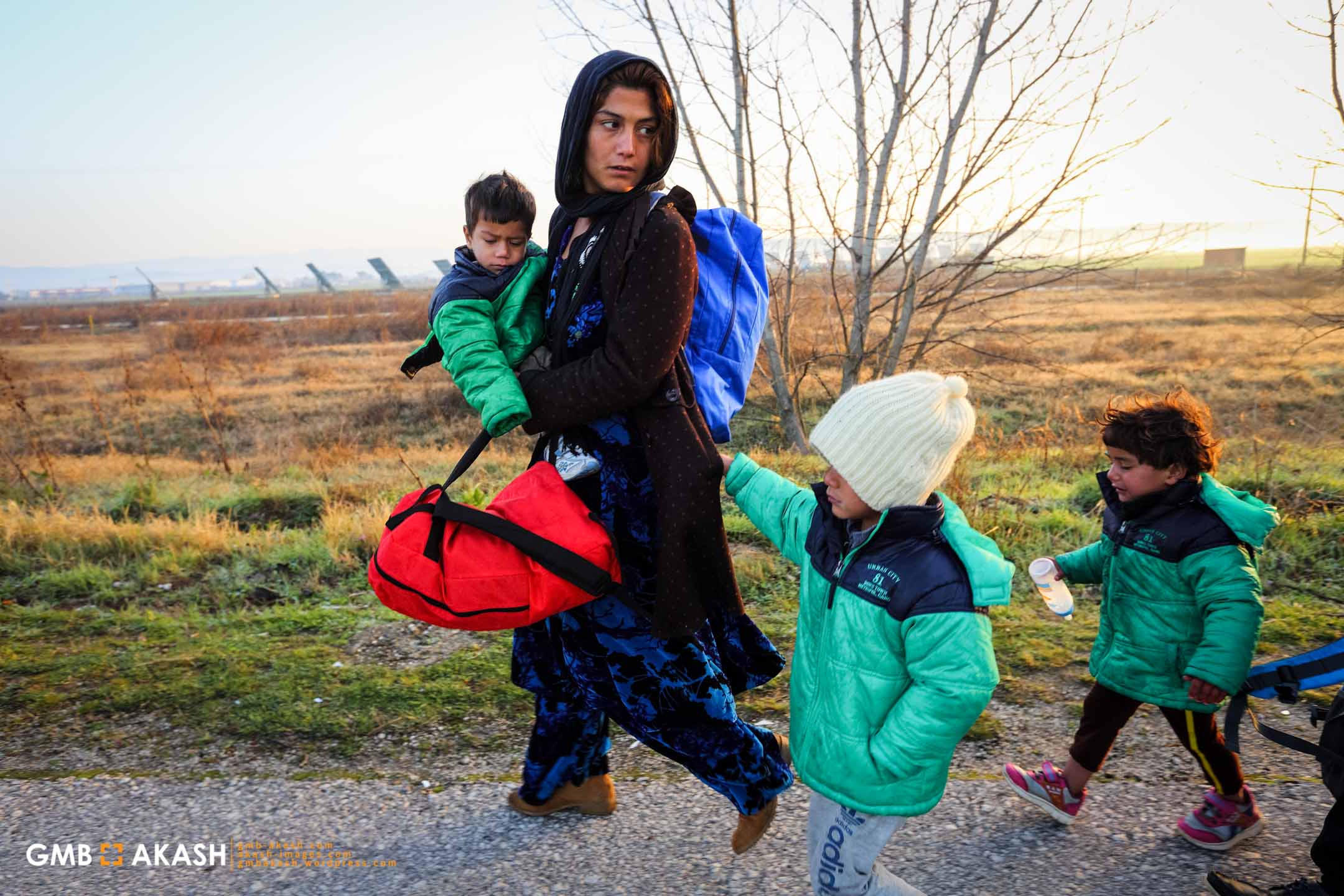


















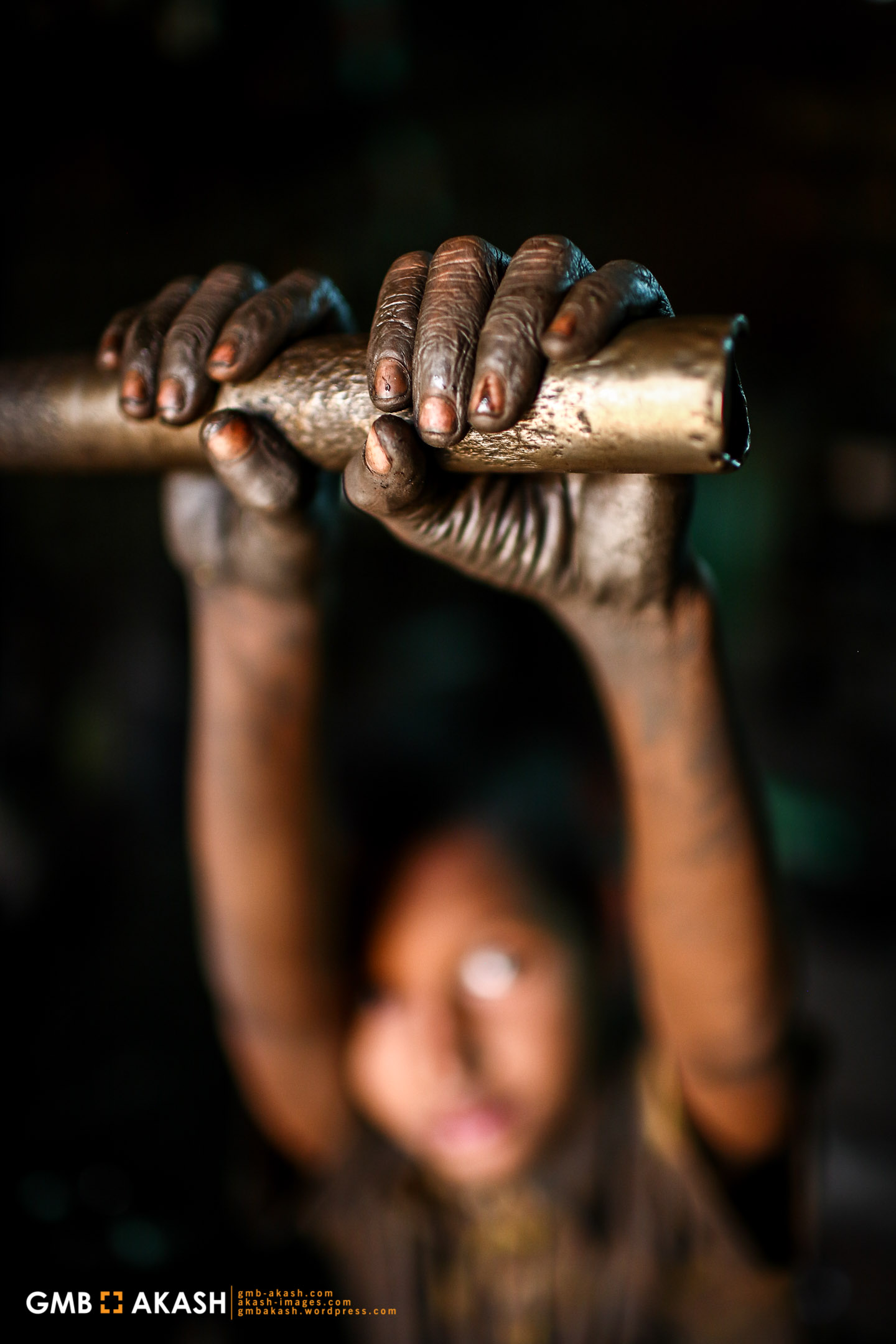























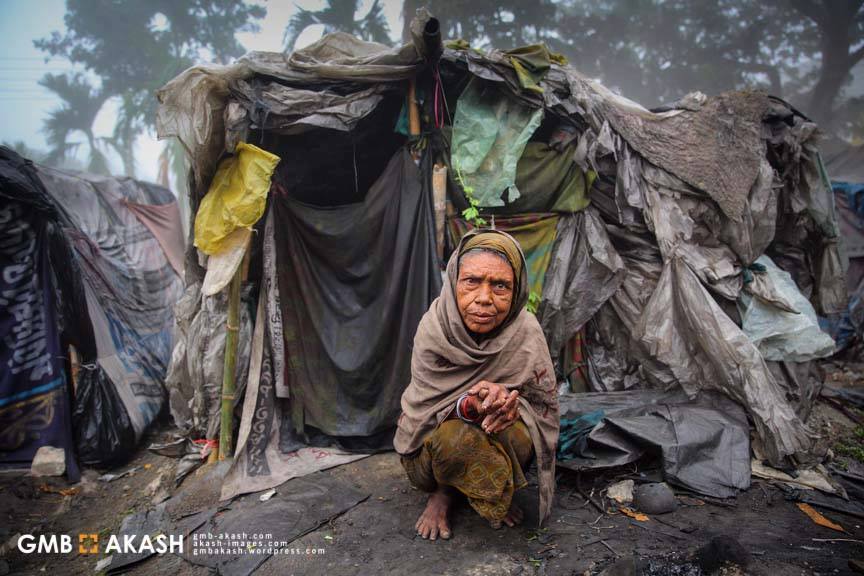























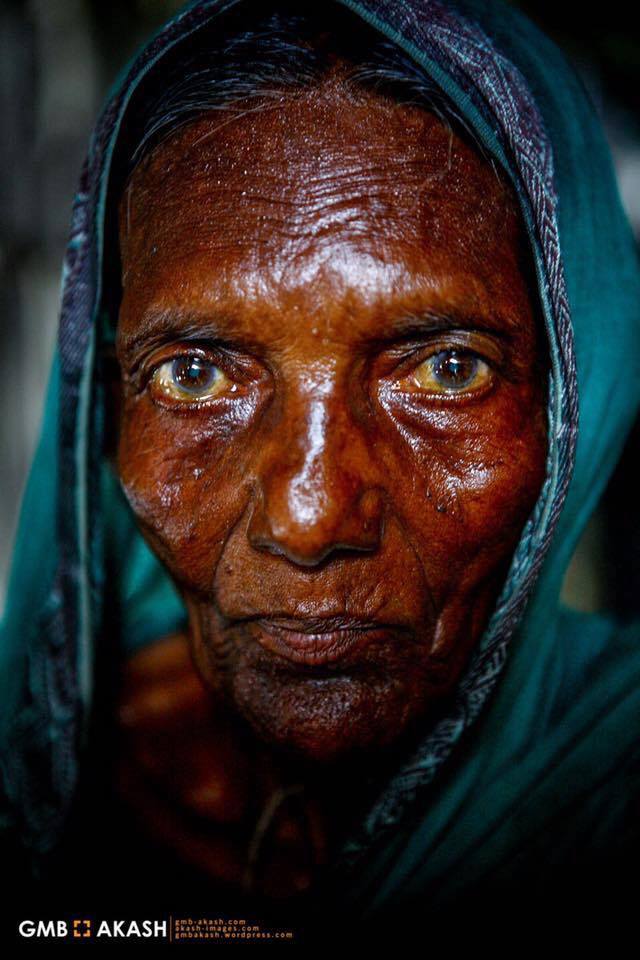





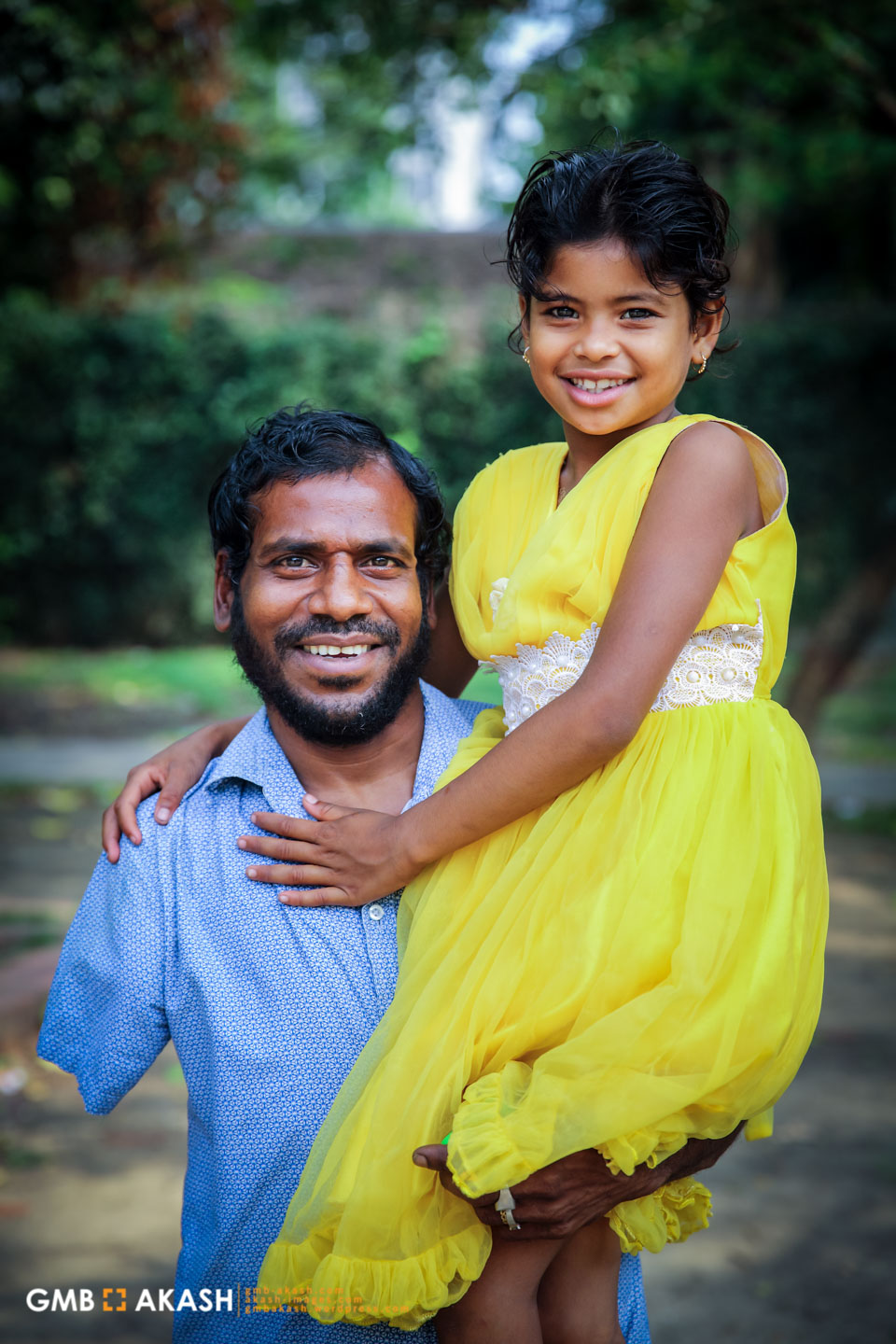













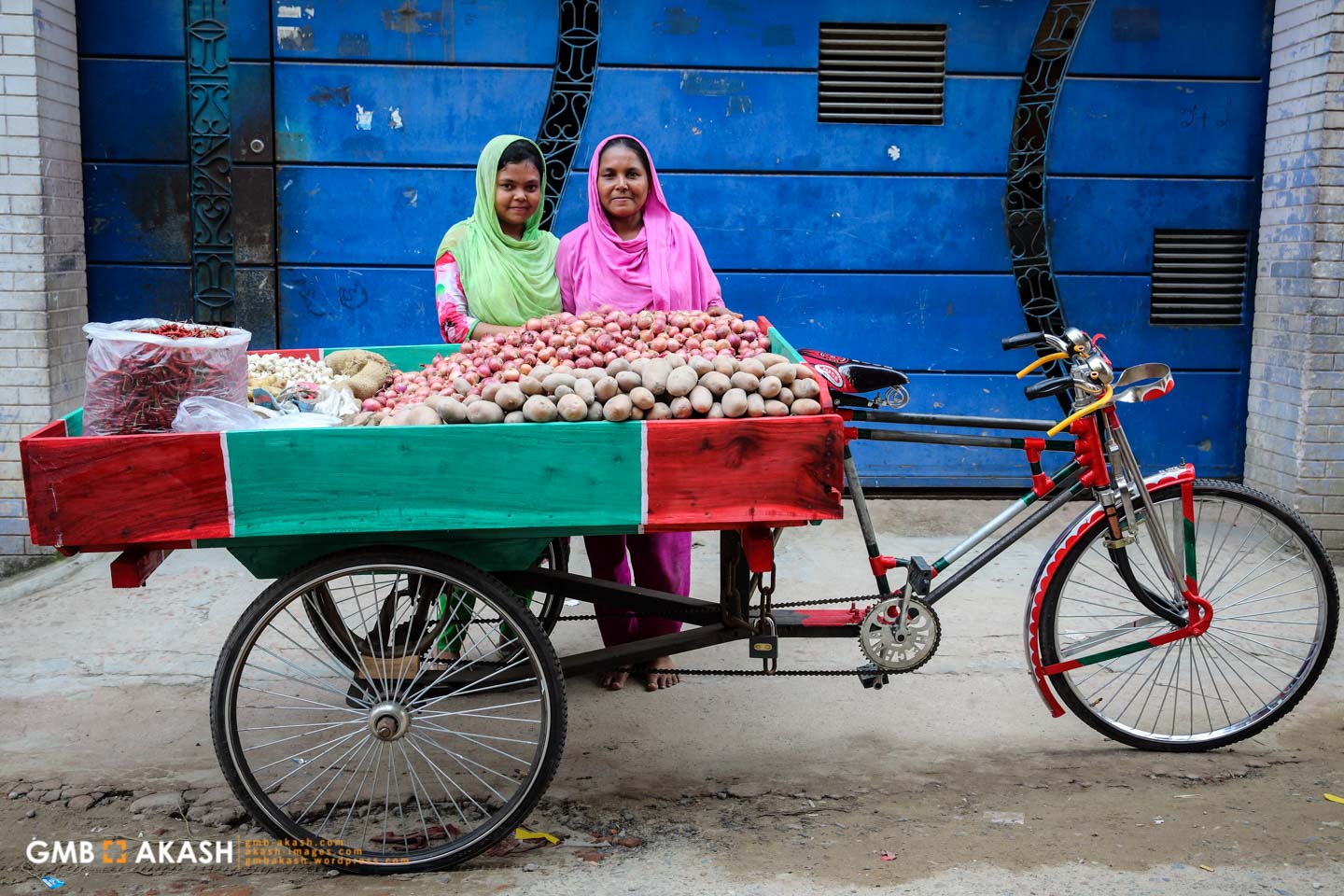
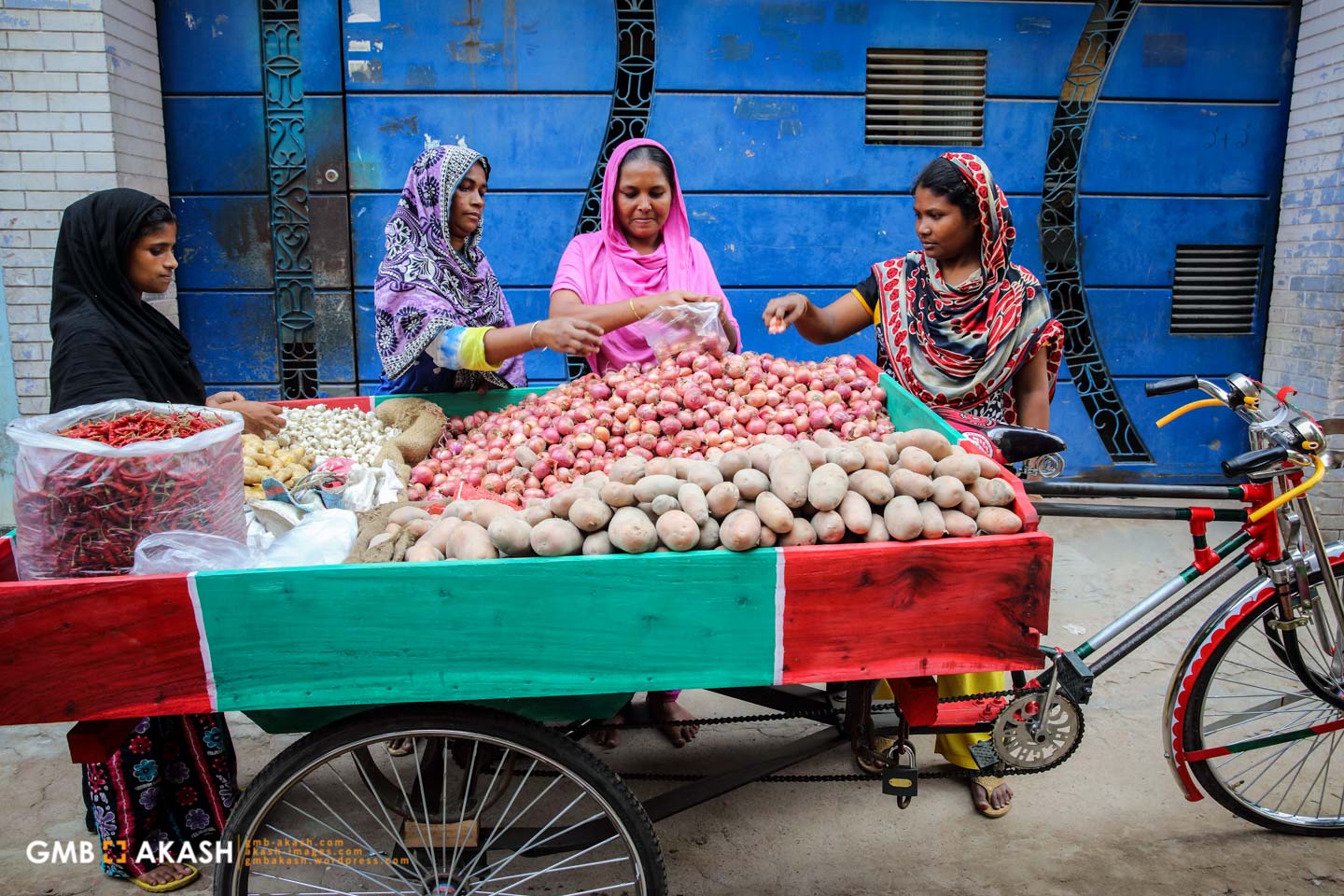






















 Ali Noor (10)
Ali Noor (10)





